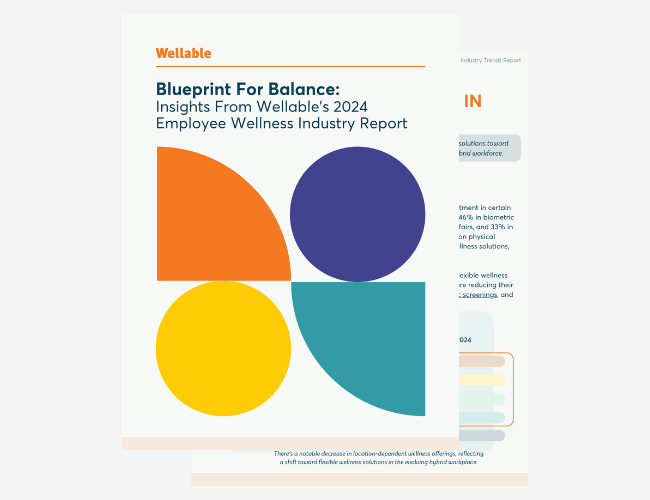The Federal Trade Commission (FTC) recently proposed a plan to ban non-compete clauses, which are agreements in employment contracts that restrict the ability of departing employees to work for competitors. Companies use these clauses to prevent employees from sharing proprietary information with rivals or using it to start their own business.
Non-compete clauses were traditionally used for high-level positions that have access to sensitive information, such as top executives, scientists, and software engineers. In recent years, these agreements have been applied to a wide range of workers. In fact, as many as one in five workers are currently bound by these restrictive clauses, including janitors, baristas, teachers, and entry-level roles. The FTC’s proposal aims to change this and give more freedom to workers to pursue new opportunities.
The Price Of Protection: Harmful Effects Of Non-Compete Clauses
Non-compete clauses may appear to be an effective way to protect a company’s interests, but they can also have detrimental effects on workers and the economy as a whole:
- Depresses Labor Market Mobility: Non-compete clauses restrict workers of the freedom to switch to new jobs that provide opportunities for higher wages, more favorable working conditions, and skill expansion. They also deprive other businesses of the talent pool needed to grow and expand.
- Suppresses Wages: With employees locked into their company, employers have little incentive to increase compensation to remain competitive in the labor market and retain employees, resulting in nearly $300 billion in suppressed wages annually.
- Limits Entrepreneurship: Individuals may be discouraged from starting competing businesses, stifling innovation, and reducing the number of new entrants into a market. This ultimately affects consumers who face higher prices in markets with less competition.
What’s Next?
The FTC voted 3-1 to issue the proposal, subject to a period of public comment through March 20th. During this time, the public can submit comments for the FTC’s consideration before the proposal can be adopted as a formal regulation.
It is unlikely the non-compete proposal will result in an outright ban as legal opposition from companies will stand by the practice for legitimate reasons. Instead, competition policy experts expect that the ban will only apply to workers below a certain income level, and there will be limits on the duration and scope of the clauses. However, the proposal will still affect most businesses in one way or another.
While the FTC’s plan should expand labor market flexibility, employees might experience limitations on upward mobility within their current companies. Reduced protection could make employers hesitant to promote employees to higher-level positions for fear of sharing proprietary information.
Shifting Focus: How Employers Can Protect Their Businesses
The FTC’s proposed ban on non-compete clauses is a major shift that will change the business landscape. It could create job opportunities for 30 million Americans, and lead to a brighter future for job-seekers and a more competitive environment for employers. According to Wellable’s 2023 Employee Wellness Industry Trends Report, employers will shift their focus from talent acquisition to employee retention in the coming year. With this proposal, it becomes even more important for companies to develop effective retention strategies rather than relying on restrictive non-compete clauses.
So, how can employers stay ahead of the game in a business landscape blooming with new opportunities for employees?
1. Implement Flexible Working Arrangements
The past two years of remote work induced by the pandemic has become the new normal for many organizations. As a result, employees are now looking for workplaces that offer more flexibility and support for work-life balance. Employers who can meet these demands will have a competitive advantage by boosting employee satisfaction, reducing turnover rates, and attracting top talent.
Employers can consider implementing more permanent flexible work arrangements, such as a hybrid work model or adjustable hours, to promote employee well-being and increase productivity. These approaches allow employees to choose the times and places where they work best. In the long run, offering flexible working conditions is beneficial for both employers and employees and is essential for staying competitive in a modern job market.
2. Offer Competitive Compensation
In today’s challenging economic environment, employers have an opportunity to support their employees in meeting their financial needs. A recent survey found that many employees have trouble saving for unexpected expenses, which highlights the importance of competitive compensation for job-seekers. By offering competitive compensation, employers can gain an edge over competitors in the market for talent.
Despite the current economic uncertainty, it is predicted that salaries will increase in 2023. This is because replacing workers can be costly, and retaining employees is crucial for the success of an organization. To stay competitive and keep employees satisfied, companies should re-evaluate their salary ranges and benefits packages.
An increasing number of employers are recognizing the importance of financial wellness for their employees and are investing more in this area. Wellable’s 2023 Industry Trends Report found that 65% of employers plan to do this in the coming year. This trend highlights the need for organizations to offer competitive compensation, financial educational resources, coaching services, and other forms of support to help employees manage their finances.
3. Recognize And Reward Employees
Employee engagement is critical to sustained business success, as it increases employee productivity, satisfaction, and retention. However, only 15% of employees are engaged at work.
One of the reasons for this trend is that many employees feel there are limited opportunities for career advancement within their company. Only a small percentage of employees are satisfied with their growth prospects. To address this, employers should consider providing opportunities for professional growth and development, even if they are hesitant about the limitations of non-compete clauses. This is crucial for keeping employees engaged and motivated to stay with the company.
Another way to reward employees for their hard work is by showing appreciation. Recognizing and acknowledging employees’ contributions is a key factor in promoting job satisfaction, engagement, and motivation in the workplace. Simple gestures such as expressing gratitude for an employee’s efforts and accomplishments, both privately and publicly, can be incredibly effective in retaining top talent.
Takeaway
The FTC’s proposed ban on non-compete clauses could have a big impact on the way businesses operate. Without these restrictive agreements, employers will need to find new ways to keep their employees loyal, such as offering incentives, rather than relying on restrictive agreements. This change could also give employees more freedom to move between jobs and potentially see increased wages.
To keep employees motivated and engaged, employers can adopt strategies such as offering flexible working arrangements, providing competitive compensation, and recognizing and rewarding employees for their contributions. This approach, which emphasizes employee retention, is beneficial for both the employee and the employer. It leads to a more productive, engaged, and committed workforce.












